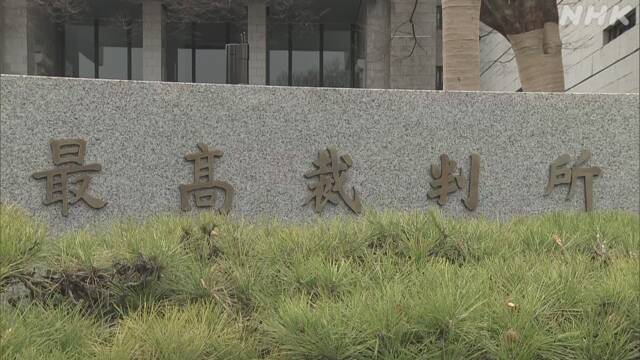In response to the issue of records such as juvenile cases that attracted social attention being destroyed by courts in various regions, the Supreme Court directly explained to the bereaved families of the Kobe child serial murder case on February 2 a report summarizing the circumstances of the destruction.
At the press conference after the event, the bereaved family said, "I hope that you will accept the historical and social value of the incident record and continue to consider how to preserve it."
In response to the discovery of the destruction of records of serious incidents, including the serial murder of children in Kobe City in 1997, the Supreme Court released a report on the history of the destruction and how it should be preserved on the 25th of last month.
On the 2nd, Mamoru the father who lost his second son, Jun Doshi, who was in the sixth grade of elementary school in the Kobe child serial murder case, received a direct explanation of the contents of the report from a person in charge of the Supreme Court.
According to Mr. Doshi, who held a press conference after the event, the person in charge apologized, saying, "We are very sorry for the loss of materials that have great historical and social value and are meaningful."
In the Kobe case, the Supreme Court investigation revealed that when the records were destroyed, the manager in charge consulted with several managers, including the director at the time, but no one gave a clear decision.
Doshi told the person in charge that "each court staff should have thought more about the significance of case records through training and other means," and asked them to consider digitizing and preserving case records and using them to prevent recurrence and support victims.
Mr. Doshi said, "The case record is a living testimony of a child and has historical and social value, and I hope that the court will continue to consider the significance and nature of preservation beyond this investigation."
Male court clerk: "Listen to the voices of the field and consider it concretely"
A male court clerk who is currently working as a court clerk spoke to NHK about the issue of the destruction of records of juvenile cases and civil trials that attracted social attention, such as the Kobe child serial murder case.
The man said, "The site was more conscious of disposal than preservation, and the reality is that the contents of the records were processed mechanically when the preservation period expired without sufficient consideration.
Regarding the report released by the Supreme Court on the 25th of last month, I believe that "it is important that the regulations clearly state the significance of preserving records as 'common property of the people,' but I believe that writing only the mentality that records are important will not change much in the field if they are written only in the spirit that records are important."
The man said, "In the court, the clerk does all kinds of work, but except for the law, he is an amateur and can only do as prescribed. I would like them to consider the specifics while listening not only to the people in charge of the Supreme Court but also to the voices of the people on the ground."

